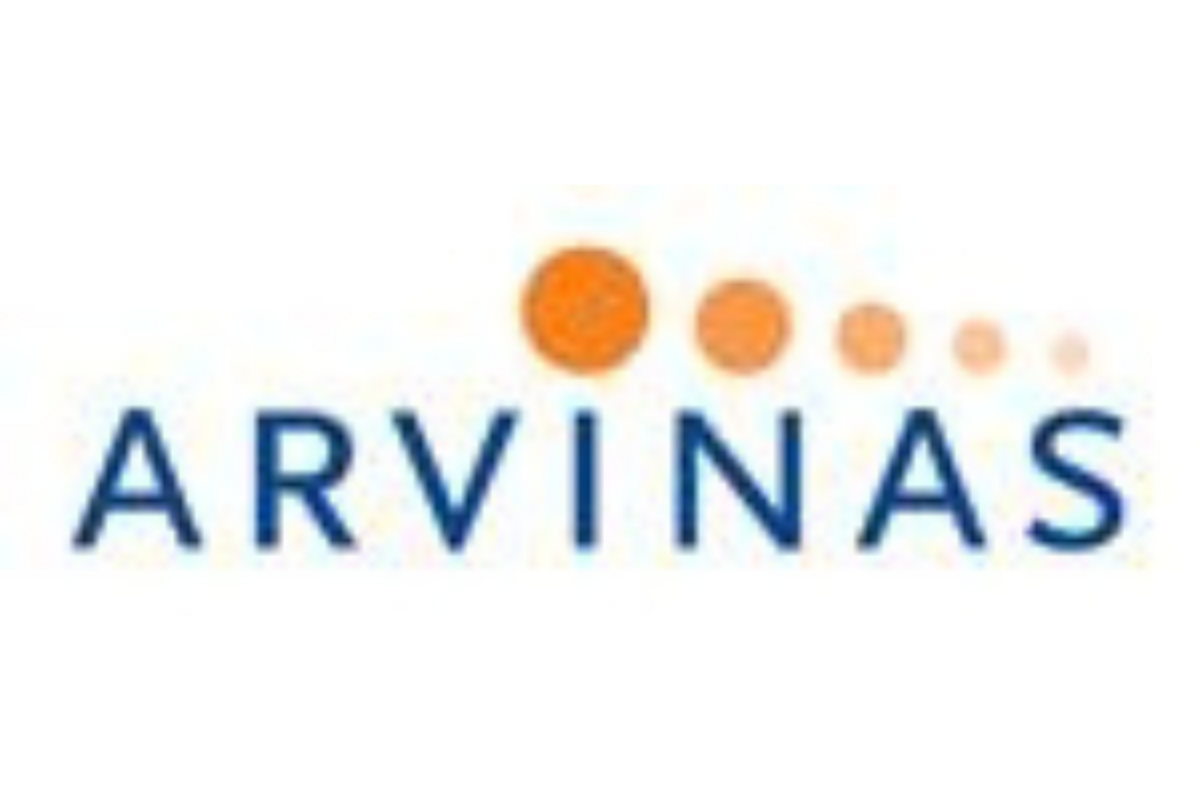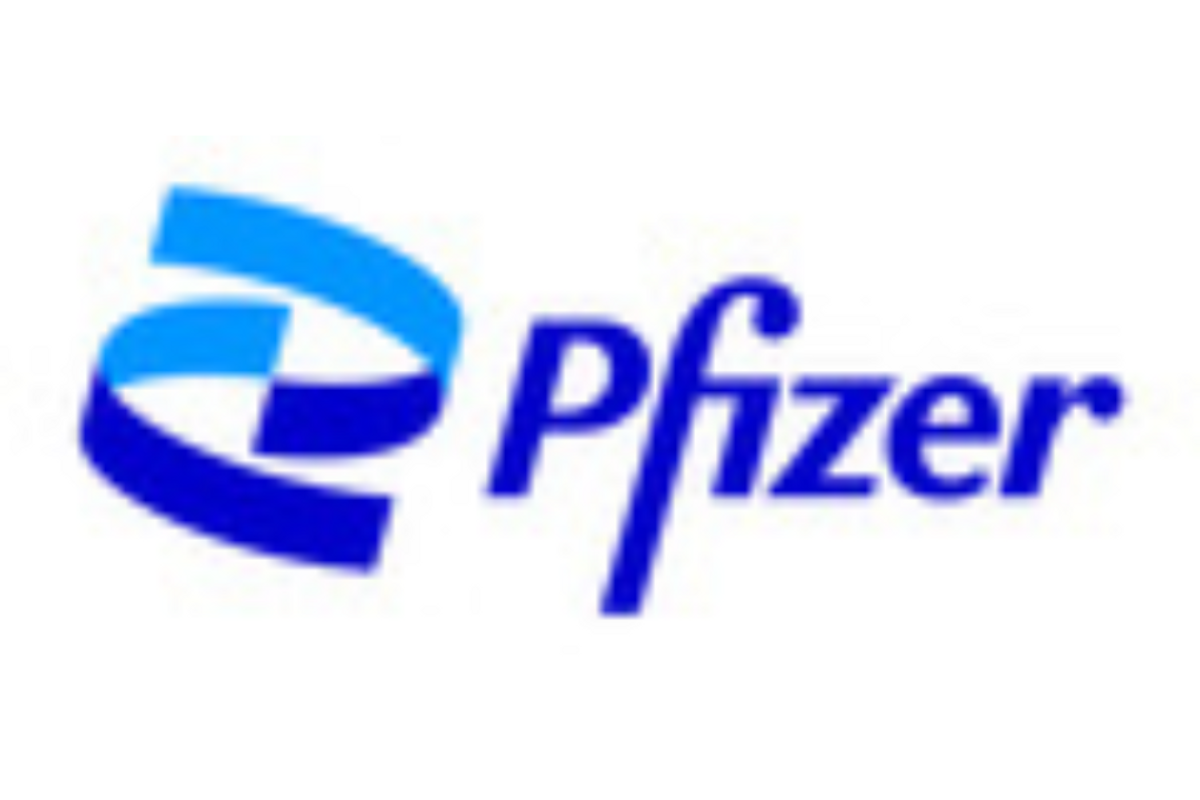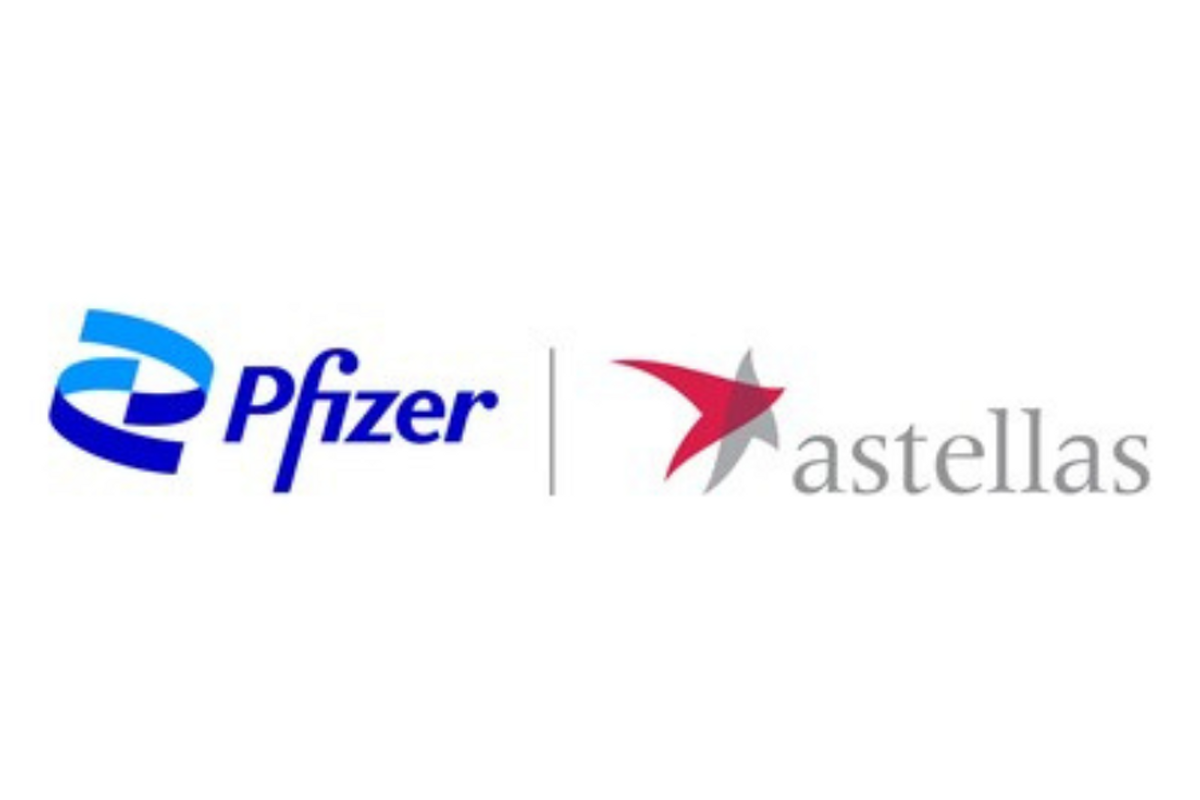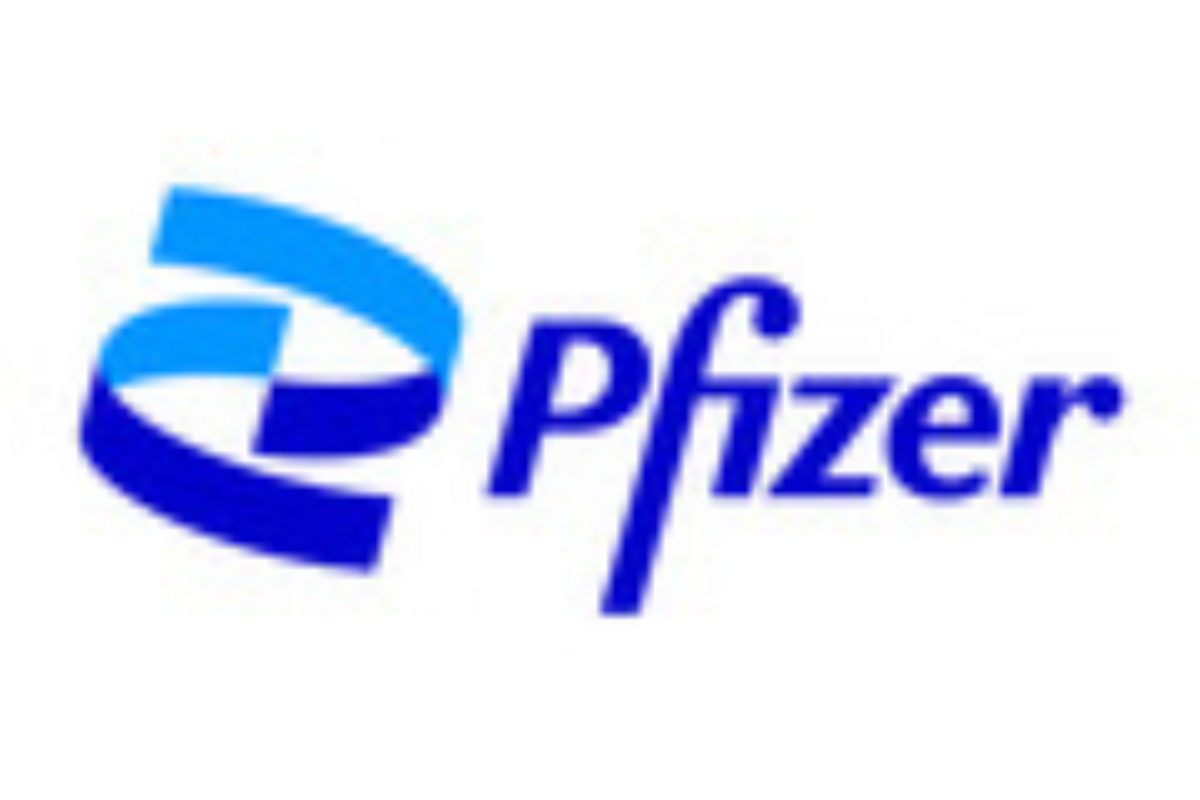Pfizer Inc. (NYSE: PFE) and OPKO Health, Inc. (NASDAQ: OPK) announced today that the European Commission has granted marketing authorization for the next-generation long-acting recombinant human growth hormone NGENLA™ (somatrogon), a once-weekly injection to treat children and adolescents from 3 years of age with growth disturbance due to insufficient secretion of growth hormone. NGENLA provides pediatric patients, their caregivers and healthcare providers with a new treatment option for growth hormone deficiency (GHD) that reduces the frequency of required injections from once daily to once weekly.
This press release features multimedia. View the full release here: https://www.businesswire.com/news/home/20220214005834/en/
"Growth hormone deficiency takes a substantial toll on children living with this rare disease and their families, and for many years, daily injections have been the standard of care, adding to the challenges they face," said Reda Guiha, Regional President for International Developed Markets, Pfizer Rare Disease. "With NGENLA, we are proud to continue to advance the care of children in Europe who are impacted by growth hormone deficiency with a new, longer-acting option that significantly reduces treatment burden from once-daily to once-weekly injections."
GHD is a rare disease characterized by the inadequate secretion of the growth hormone, somatropin, from the pituitary gland and affects one in approximately 4,000 to 10,000 children worldwide. The disease can be caused by genetic mutations or acquired after birth. Without treatment, affected children will have persistent growth attenuation and a very short height in adulthood, and puberty may be delayed. Children may also experience other problems with physical health and mental well-being.
"By helping to minimize disease management burden, we believe NGENLA has the potential to improve quality of life for children impacted by growth hormone deficiency and their families, as well as increase treatment adherence, which can improve outcomes," said Phillip Frost, M.D., Chairman and Chief Executive Officer, OPKO Health. "We are pleased that the marketing authorization in the European Union will enable more children with growth hormone deficiency to benefit from once-weekly treatment."
The European Union (EU) marketing authorization of NGENLA was supported by results from a global, randomized, open-label, active-controlled Phase 3 study which evaluated the safety and efficacy of once-weekly NGENLA compared to once-daily GENOTROPIN ® (somatropin). The study met its primary endpoint of NGENLA non-inferiority compared to GENOTROPIN, as measured by annual height velocity at 12 months. NGENLA was generally well tolerated in the study and had a safety profile comparable to GENOTROPIN.
The marketing authorization of NGENLA is valid in all EU Member States as well as Iceland, Norway and Liechtenstein.
About the NGENLA TM (somatrogon) Injection Studies
The safety and efficacy of NGENLA™ (somatrogon) was demonstrated in a randomized, open-label, active-controlled Phase 3 study conducted in over 20 countries. In this study, 224 prepubertal, treatment-naïve children with growth hormone deficiency (GHD) were randomized 1:1 to receive NGENLA once-weekly or GENOTROPIN ® (somatropin) once-daily. The study met its primary endpoint of NGENLA non-inferiority compared to GENOTROPIN, as measured by annual height velocity at 12 months. NGENLA was generally well tolerated in the study and had a safety profile comparable to GENOTROPIN. Participants had the opportunity to enroll in a global, open-label, multicenter, long-term extension study in which they were able to either continue receiving or switch to NGENLA. Approximately 95% of the patients switched into the open-label extension study and received NGENLA treatment.
An additional Phase 3 study (C0311002) assessed the perception of the treatment burden of once-weekly NGENLA versus once-daily GENOTROPIN among children three to
About NGENLA TM (somatrogon) Injection
NGENLA™ (somatrogon) is a synthetic growth hormone that works by replacing the lack of growth hormone in the body. NGENLA is taken by injection just below the skin. Compared to the growth hormone GENOTROPIN ® (somatropin), its action in the body lasts longer, enabling weekly injections instead of daily. NGENLA is approved for the treatment of pediatric growth hormone deficiency (GHD) in Canada, Australia and Japan, and the EU marketing authorization is valid in all EU Member States as well as Iceland, Norway and Liechtenstein.
In 2014, Pfizer and OPKO entered into a worldwide agreement for the development and commercialization of NGENLA for the treatment of GHD. Under the agreement, OPKO is responsible for conducting the clinical program and Pfizer is responsible for registering and commercializing NGENLA for GHD.
About GENOTROPIN ® (somatropin)
GENOTROPIN ® (somatropin) is a man-made, prescription treatment option. The indications GENOTROPIN is approved for vary by market. GENOTROPIN is approved for growth failure due to growth hormone deficiency (GHD) and adult GHD, Prader-Willi Syndrome, Idiopathic Short Stature, Turner Syndrome, Small for Gestational Age (with no catch-up growth) and Chronic Renal Insufficiency. GENOTROPIN is taken by injection just below the skin and is available in a wide range of devices to fit a range of individual dosing needs. GENOTROPIN is just like the natural growth hormone that our bodies make and has an established safety profile.
Important GENOTROPIN ® (somatropin) Safety Information
- Growth hormone should not be used in patients who are critically ill because of surgery, trauma, or respiratory failure.
- Growth hormone should not be used in children with Prader-Willi syndrome who are very overweight or have severe breathing problems.
- GENOTROPIN should not be used by patients who have had an allergy or bad reaction to somatropin or any of the other ingredients in GENOTROPIN. In the event of an allergic reaction, seek prompt medical attention.
- Some patients have developed diabetes mellitus while taking GENOTROPIN. Dosage of diabetes medicines may need to be adjusted during growth hormone treatment. Patients should be watched carefully if growth hormone is given along with glucocorticoid therapy and/or other drugs that are processed by the body in the same way.
- In childhood cancer survivors, treatment with growth hormone may increase the risk of a new tumor, particularly certain benign brain tumors. This risk may be higher in patients who were treated with cranial radiation. Also, patients and their doctors should check regularly for skin changes.
- A small number of patients treated with growth hormone have had increased pressure in the brain. This can cause headaches and problems with vision. Treatment should be stopped and reassessed in these patients. Patients with Turner syndrome and Prader-Willi syndrome may be at higher risk of developing increased pressure in the brain.
- Thyroid function should be checked regularly during growth hormone therapy. Thyroid hormone replacement therapy should be started or adjusted if needed.
- Patients treated with growth hormone should be checked regularly for low serum cortisol levels and/or the need to increase the dose of the glucocorticoids they are taking.
- In children experiencing rapid growth, curvature of the spine may develop or worsen. This is also called scoliosis. Patients with scoliosis should be checked regularly to make sure their scoliosis does not get worse during their growth hormone therapy.
- In children experiencing rapid growth, limping or hip or knee pain may occur. If a child getting growth hormone therapy starts to limp or gets hip or knee pain, the child's doctor should be notified and the child should be examined.
- Growth hormone should only be used during pregnancy if clearly needed. It should be used with caution in nursing mothers because it is not known whether growth hormone is passed into human milk.
- Use a different place on the body each day for growth hormone injections. This can help to prevent skin problems such as lumpiness or soreness.
- Some cases of pancreatitis (inflamed pancreas) have been reported rarely in children and adults receiving growth hormone. There is some evidence that there is a greater risk of this in children than in adults. Literature suggests that girls who have Turner syndrome may have a greater risk of pancreatitis than other children taking growth hormone. In any child who develops lasting, severe abdominal pain, pancreatitis should be considered.
- GENOTROPIN cartridges contain m-Cresol and should not be used by patients allergic to it.
- A health care provider will help you with the first injection. He or she will also train you on how to inject GENOTROPIN.
- Rx only
You are encouraged to report negative side effects of prescription drugs to the FDA. Visit www.fda.gov/MedWatch or call 1-800-FDA-1088.
For the full Prescribing Information for GENOTROPIN, please visit https://labeling.pfizer.com/ShowLabeling.aspx?id=577 .
GENOTROPIN Indications and Usage in the U.S.
GENOTROPIN is a prescription product for the treatment of growth failure in children:
- Who do not make enough growth hormone on their own. This condition is called growth hormone deficiency (GHD).
- With a genetic condition called Prader-Willi syndrome (PWS). Growth hormone is not right for all children with PWS. Check with your doctor.
- Who were born smaller than most other babies born after the same number of weeks of pregnancy. Some of these babies may not show catch-up growth by age 2 years. This condition is called small for gestational age (SGA).
- With a genetic condition called Turner syndrome (TS).
- With idiopathic short stature (ISS), which means that they are shorter than 98.8% of other children of the same age and sex; they are growing at a rate that is not likely to allow them to reach normal adult height, and their growth plates have not closed. Other causes of short height should be ruled out. ISS has no known cause.
GENOTROPIN is a prescription product for the replacement of growth hormone in adults with GHD that started either in childhood or as an adult. Your doctor should do tests to be sure you have GHD, as appropriate.
Pfizer Rare Disease
Rare disease includes some of the most serious of all illnesses and impacts millions of patients worldwide, representing an opportunity to apply our knowledge and expertise to help make a significant impact on addressing unmet medical needs. The Pfizer focus on rare disease builds on more than two decades of experience, a dedicated research unit focusing on rare disease, and a global portfolio of multiple medicines within a number of disease areas of focus, including rare hematologic, neurologic, cardiac and inherited metabolic disorders.
Pfizer Rare Disease combines pioneering science and deep understanding of how diseases work with insights from innovative strategic collaborations with academic researchers, patients, and other companies to deliver transformative treatments and solutions. We innovate every day leveraging our global footprint to accelerate the development and delivery of groundbreaking medicines and the hope of cures.
Click here to learn more about our Rare Disease portfolio and how we empower patients, engage communities in our clinical development programs, and support programs that heighten disease awareness.
About Pfizer: Breakthroughs That Change Patients' Lives
At Pfizer, we apply science and our global resources to bring therapies to people that extend and significantly improve their lives. We strive to set the standard for quality, safety and value in the discovery, development and manufacture of health care products, including innovative medicines and vaccines. Every day, Pfizer colleagues work across developed and emerging markets to advance wellness, prevention, treatments and cures that challenge the most feared diseases of our time. Consistent with our responsibility as one of the world's premier innovative biopharmaceutical companies, we collaborate with health care providers, governments and local communities to support and expand access to reliable, affordable health care around the world. For more than 150 years, we have worked to make a difference for all who rely on us. We routinely post information that may be important to investors on our website at www.Pfizer.com . In addition, to learn more, please visit us on www.Pfizer.com and follow us on Twitter at @Pfizer and @Pfizer News , LinkedIn , YouTube and like us on Facebook at Facebook.com/Pfizer .
Disclosure Notice
The information contained in this release is as of February 15, 2022. Pfizer and OPKO assume no obligation to update forward-looking statements contained in this release as the result of new information or future events or developments.
This release contains forward-looking information about NGENLA TM (somatrogon) injection and the marketing authorization in the EU to treat children and adolescents from 3 years of age with growth disturbance due to insufficient secretion of growth hormone, including its potential benefits, that involves substantial risks and uncertainties that could cause actual results to differ materially from those expressed or implied by such statements. Risks and uncertainties include, among other things, uncertainties regarding the commercial success of NGENLA; the uncertainties inherent in research and development, including the ability to meet anticipated clinical endpoints, commencement and/or completion dates for our clinical trials, regulatory submission dates, regulatory approval dates and/or launch dates, as well as the possibility of unfavorable new clinical data and further analyses of existing clinical data; the risk that clinical trial data are subject to differing interpretations and assessments by regulatory authorities; whether regulatory authorities will be satisfied with the design of and results from our clinical studies; uncertainties regarding the company's ability to address the comments in the complete response letter received from the U.S. Food and Drug Administration (FDA) regarding the biologics license application (BLA) for somatrogon for the treatment of pediatric patients with growth hormone deficiency to the satisfaction of the FDA; whether and when drug applications may be filed in any additional jurisdictions for NGENLA injection for the treatment of pediatric patients with growth hormone deficiency or in any jurisdictions for any other potential indications for NGENLA injection; whether and when regulatory authorities in any jurisdictions may approve any applications that may be pending or filed (including the BLA), which will depend on myriad factors, including making a determination as to whether the product's benefits outweigh its known risks and determination of the product's efficacy and, if approved, whether NGENLA injection will be commercially successful; decisions by regulatory authorities impacting labeling, manufacturing processes, safety and/or other matters that could affect the availability or commercial potential of NGENLA injection; uncertainties regarding the impact of COVID-19 on Pfizer's business, operations and financial results; and competitive developments.
A further description of risks and uncertainties can be found in Pfizer's and OPKO's respective Annual Reports on Form 10- K for the fiscal year ended December 31, 2020 and in their respective subsequent reports on Form 10-Q, including in the sections thereof captioned "Risk Factors" and "Forward-Looking Information and Factors That May Affect Future Results", as well as in their respective subsequent reports on Form 8-K, all of which are filed with the U.S. Securities and Exchange Commission and available at www.sec.gov and www.pfizer.com .
About OPKO Health, Inc.
OPKO is a multinational biopharmaceutical and diagnostics company that seeks to establish industry-leading positions in large, rapidly growing markets by leveraging its discovery, development, and commercialization expertise and novel and proprietary technologies. For more information, visit https://www.OPKO.com .
View source version on businesswire.com: https://www.businesswire.com/news/home/20220214005834/en/
Pfizer
Media Relations:
eMail: EUPress@pfizer.com
Phone: +44 (0) 1737 332 335
Investor Contact:
IR@Pfizer.com
+1 (212) 733-4848
OPKO
Yvonne Briggs
+1 (310) 691-7100
ybriggs@lhai.com
Bruce Voss
+1 (310) 691-7100
bvoss@lhai.com







